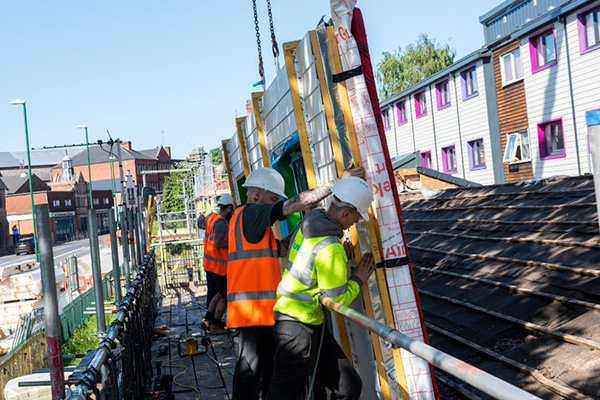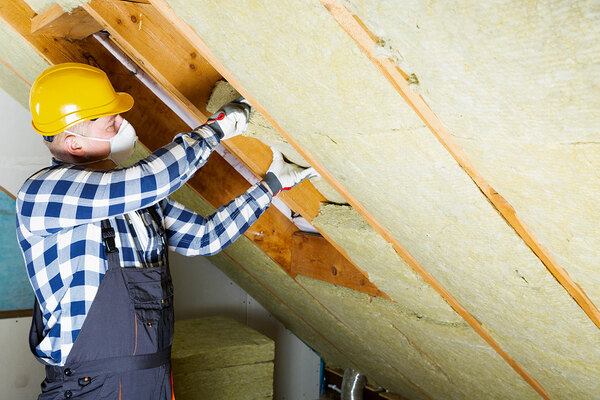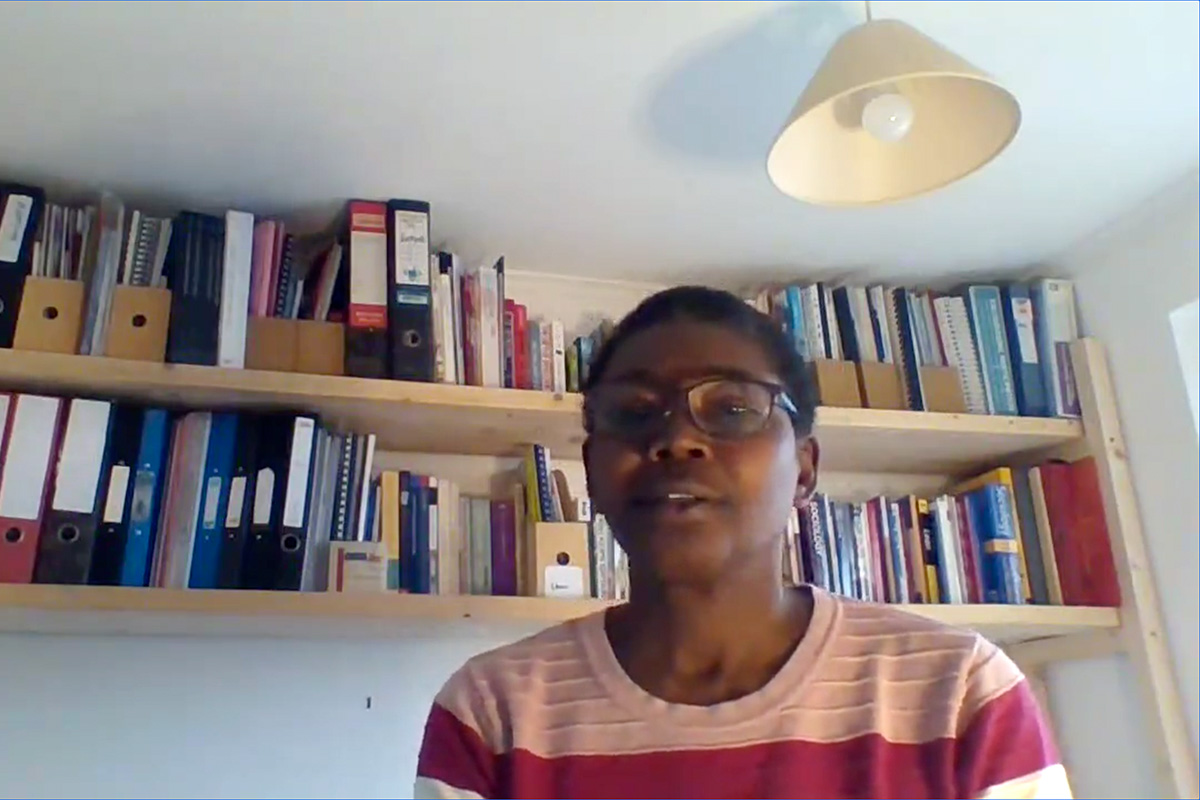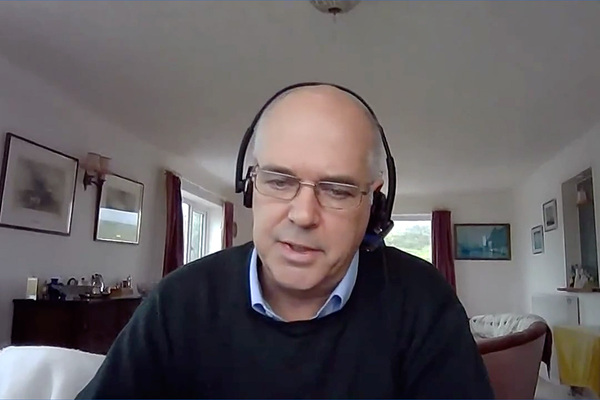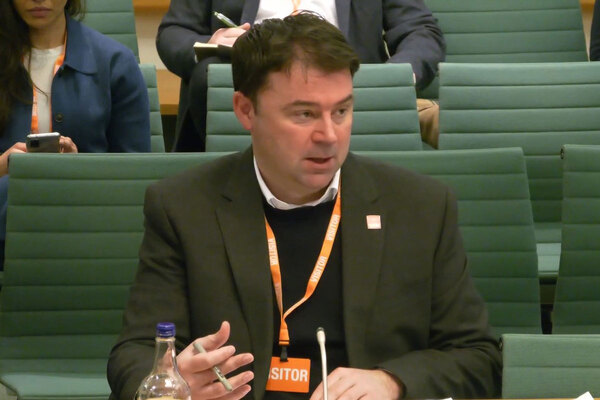What are the steps needed for social housing to get to zero carbon?
The challenge of decarbonising social homes is no mean feat. Inside Housing and landlord Stonewater held a breakfast briefing to discuss what the sector needs to grapple with and how best to approach it
In association with:

When Nicholas Harris considers decarbonising the 34,000 homes his organisation provides, he feels there is a definite sense of urgency. But, as he tells an Inside Housing breakfast briefing, it runs alongside a whole host of other concerns.
Nicholas Harris, chief executive, Stonewater
“We can see the impacts of global warming around the world and we know that the clock is ticking down,” says the chief executive of Stonewater.
“But decarbonisation is only one of the challenges that I’m grappling with. I’m grappling with the problems of health and safety. I’m grappling with the need to build much-needed affordable homes.
“Then I’m grappling with decarbonisation. How we square that is a big challenge for all of us, and how we make sure we make the right investments at the right time.”
That challenge is at the heart of the discussion for the breakfast briefing, which is being sponsored by Stonewater and held as part of Inside Housing and Social Housing’s Retrofit Challenge: Virtual Summit.
Juliana Crowe (chair), board member, Stonewater
The panel aims to explore just how the sector can progress towards zero carbon amid a host of other pressing priorities.
“We’re going to be looking at the issue of decarbonisation of the UK social housing stock; the funding and technology requirements, and how we involve our customers on this journey,” explains event chair Juliana Crowe, a board member at Stonewater.
The importance of those investment requirements quickly emerges, with a poll of attendees revealing 38% believe a lack of long-term funding is the biggest barrier to decarbonising the UK’s housing stock.
“Funding will provide the confidence for landlords to plan for greater investment in decarbonisation and allow the supply chain to scale up,” argues Patrick Chauvin, executive director of assets at Stonewater.
And he says central government will need to step up.
“We don’t think the government should fund it all but the whole sector should work with the government to develop a long-term solution to the funding problem.”
Patrick Chauvin, executive director of assets, Stonewater
Supporting retrofitting
This proves a perfect segue to thoughts from another member of the breakfast briefing panel. Matt Harrison is the programme director at the Department for Business, Energy and Industrial Strategy’s Social Housing Decarbonisation Fund.
The demonstrator part of the fund was launched last October, with £62m in funding awarded to 17 local authorities for 19 separate projects. Its intention is to support social housing retrofitting at scale, and accelerate progress in finding innovative and replicable approaches to the challenge.
“Our analysis shows that 39% of socially rented homes are below EPC C today,” Mr Harrison says. “And many of those homes house tenants who are in fuel poverty. We do need to address it and how we go about addressing it is why we’ve set up this demonstrator.
“We’re confident that the projects we picked are going to give us some great insight. The most important thing is that we stimulate the market but we also understand what the best approach [to decarbonisation] is.”
Those answers will, he says, be multifaceted. “I can’t offer a silver bullet that will say: ‘This is how we’re going to do this.’ But by working with this community, I hope that we can find a way of developing approaches.”
Jenny Osbourne, chief executive, Tpas
One of those areas that will need to be developed is tenant engagement in decarbonisation of properties. As Jenny Osbourne, chief executive of Tpas, puts it: “These are people’s homes we’re dealing with. It’s not a stock problem. It’s a home problem.”
She says early research by her organisation – it has run a series of roundtables in collaboration with PlaceShapers, a national network of community-based social landlords – suggests there is “scant knowledge” of how best to engage residents on this topic.
“People have heard a lot about the climate change emergency, but it’s not going to be the primary reason they are going to engage in this agenda,” reports Ms Osbourne. “The impact of what a retrofit will mean for their own health and well-being, their own money, their own comfort is, of course, going to be far more primary for them.
“And I’m not convinced that talking about fuel poverty is helpful or the way we’re going to land our messages,” she adds. “It’s not a term that people recognise, and where [they are in fuel poverty that means] for many people they don’t switch on the heating at all. So saving money on heating that they don’t already switch on is not going to be a motivator.”
Matt Harrison, programme director of the Social Housing Decarbonisation Fund, Department for Business, Energy and Industrial Strategy
Tenant engagement
Certainly Mr Harrison hopes future waves of the Social Housing Decarbonisation Fund will provide best practice on tenant engagement, which will then be shared widely. “We need to be getting this information out there. We need to be sharing what’s worked and what hasn’t.”
And that sharing theme is one which comes through repeatedly during the briefing. All panellists agree that, if the sector is to successfully grapple with the decarbonisation challenge, then collaboration will be vital.
“We can’t do it alone,” says Mr Chauvin. “We’re all facing the same challenges and sharing knowledge from the great work that landlords are undertaking is really important.”
The panellists
Patrick Chauvin
Executive director of assets, Stonewater
Juliana Crowe (chair)
Board member, Stonewater
Nicholas Harris
Chief executive, Stonewater
Matt Harrison
Programme director of the Social Housing Decarbonisation Fund, Department for Business, Energy and Industrial Strategy
Jenny Osbourne
Chief executive, Tpas
Related stories


